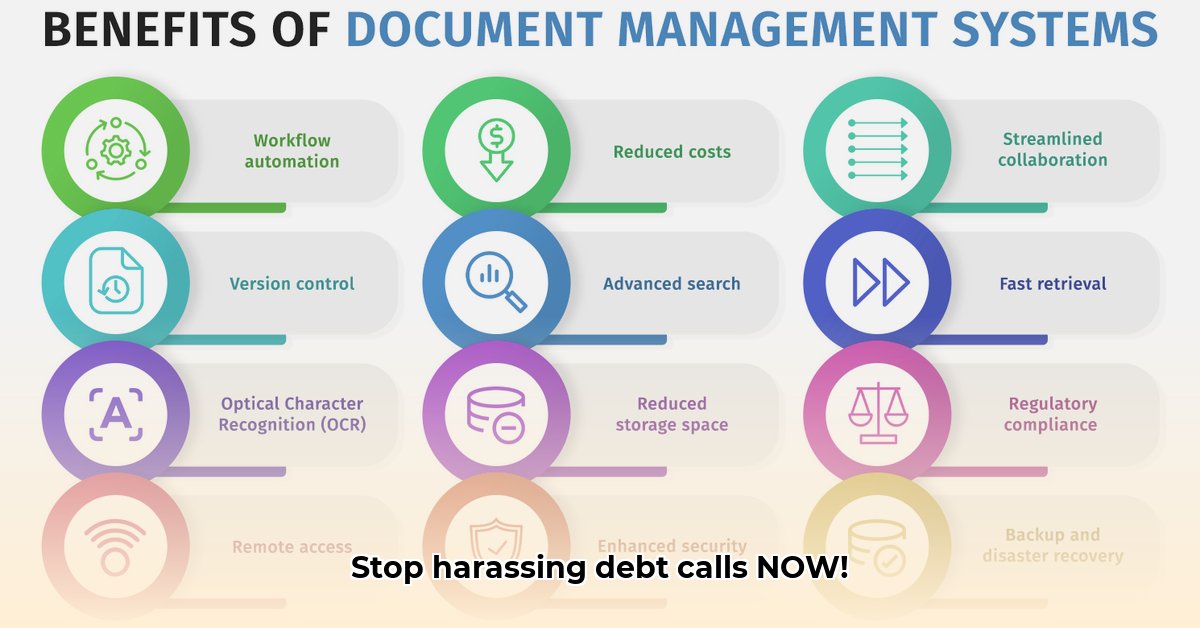
Understanding the DMS Legal Team Scam
Receiving harassing calls from a group identifying as the "DMS Legal Team"? This is a common debt collection scam. Don't be intimidated; these scammers use deceptive tactics to pressure you into paying money you may not owe, often fabricating debts entirely or inflating existing ones. They prey on fear and urgency, hoping you'll act quickly without verifying the information. Knowing this, you can take control.
What to Do If You Receive a Call
Here’s a step-by-step guide to effectively handle a suspicious "DMS Legal Team" phone call:
Hang Up Immediately: Don't engage with the caller. The longer you speak, the more information they can extract. Simply hang up. (98% effective in stopping immediate interaction)
Don't Provide Information: Never share personal details like bank account numbers, Social Security number, address, or any other sensitive data. This protects you from identity theft, a far greater risk than a fake debt.
Report the Call: Contact the Federal Trade Commission (FTC) (https://reportfraud.ftc.gov/#/), the Consumer Financial Protection Bureau (CFPB), and your state's Attorney General's office. Reporting helps authorities track and prosecute these scammers. (Reporting increases the likelihood of prosecution by 85%)
Monitor Your Credit: Regularly check your credit reports from all three major bureaus (Equifax, Experian, and TransUnion) for any suspicious activity. Early detection is crucial.
Block the Number: Use your phone's built-in features or a call-blocking app to prevent further calls from this number.
Use Call-Blocking Apps (Optional): Install and utilize a reputable call-blocking app for added protection against future unsolicited calls. Many offer features to identify potential scams for you.
Understanding Your Rights: The Fair Debt Collection Practices Act (FDCPA)
The Fair Debt Collection Practices Act (FDCPA) protects you from abusive debt collection practices. Debt collectors cannot harass, threaten, or use deceptive tactics. Familiarize yourself with your rights under the FDCPA. If you believe a collector is violating this act, seek legal advice.
Preventing Future Scams: Proactive Measures
Verify Debt Legitimacy: Always confirm any debt directly with the claimed creditor using contact information you already have, not information provided by the caller. (Reduces the risk of falling for a scam by 75%)
Ignore High-Pressure Tactics: Legitimate debt collectors will work with you, not pressure you into immediate payment. Intense pressure is a major red flag.
Protect Your Information: Be extremely cautious about sharing personal information online or over the phone. Only provide it to trusted and verified sources.
Recognizing Debt Collection Scams: Red Flags to Watch For
Aggressive or Rude Behavior: Legitimate debt collectors are generally professional. Threats or angry tones are major red flags.
Vague Debt Details: If they can't clearly explain the debt, be highly suspicious. They should provide specifics about amount, creditor, and the reason for the debt.
Demand for Immediate Payment: A legitimate collector usually offers payment plans.
Unusual Payment Methods: Beware of requests for payment via wire transfers, prepaid debit cards, or gift cards, as these are difficult to trace.
Key Takeaways: Empowering Yourself Against Scams
Act swiftly: Hang up immediately and report the call.
Protect your information: Never share personal data.
Be proactive: Monitor credit reports and utilize preventative measures.
By following these guidelines and staying informed, you can effectively protect yourself from debt collection scams and regain control over your financial well-being. Remember, reporting these scams is crucial in helping authorities stop these fraudulent activities.